Excellent Belgian research infrastructure BR2 got a makeover
SCK CEN, the Belgian Nuclear Research Centre is proud to announce that its iconic research infrastructure Belgian Reactor 2 (BR2) has been successfully maintained and refurbished. This worldwide unique research reactor is ready to fulfil its crucial role as a producer of medical radioisotopes, essential in the diagnosis and treatment of cancer, for at least another ten years. Thanks to the Belgian radioisotope production, seven million patients per year receive a diagnostic test.
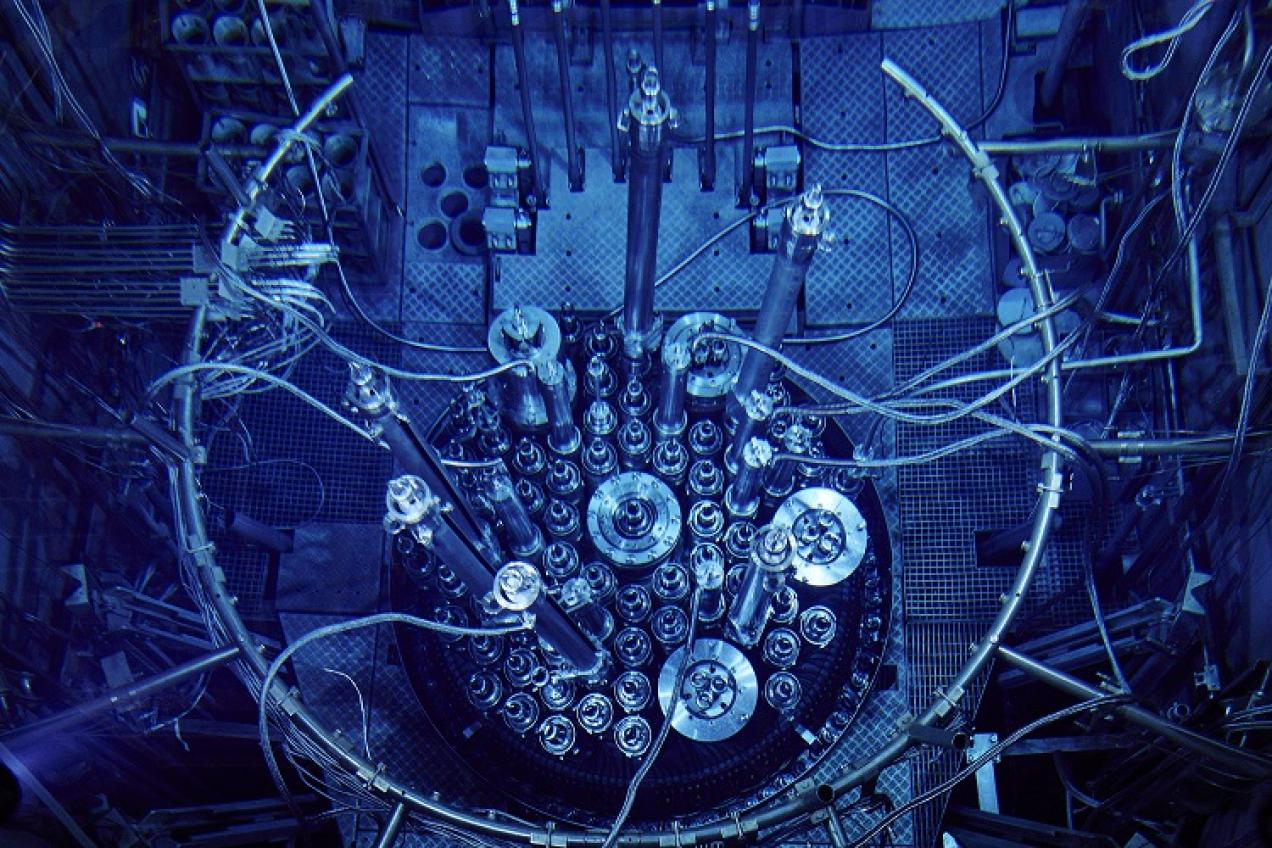
On Friday 28 October, SCK CEN in Mol organised an academic session in the presence of Her Royal Highness Princess Astrid to celebrate the successful restart of its research reactor BR2 after a 16-month refurbishment. In February 2015, BR2 was decommissioned for thorough maintenance and refurbishment, particularly the replacement of the matrix, the heart of the reactor. The installation was restarted, as planned, in July 2016 and has since successfully implemented two production cycles of medical radioisotopes.
In nuclear medicine, radioisotopes are used for the diagnosis and treatment of certain diseases, including cancer. The most commonly used medical radioisotope is technetium-99m (99mTc), formed by the decay of molybdenum-99 (99Mo). It is used in about 80% of the diagnostic procedures, which amounts to 30 million diagnoses worldwide each year. Research reactor BR2 produces annually more than 25% of the global demand for molybdenum-99 or, in case of high demand, up to 65%. Every year, nearly 7 million tests are conducted thanks to the Belgian production.
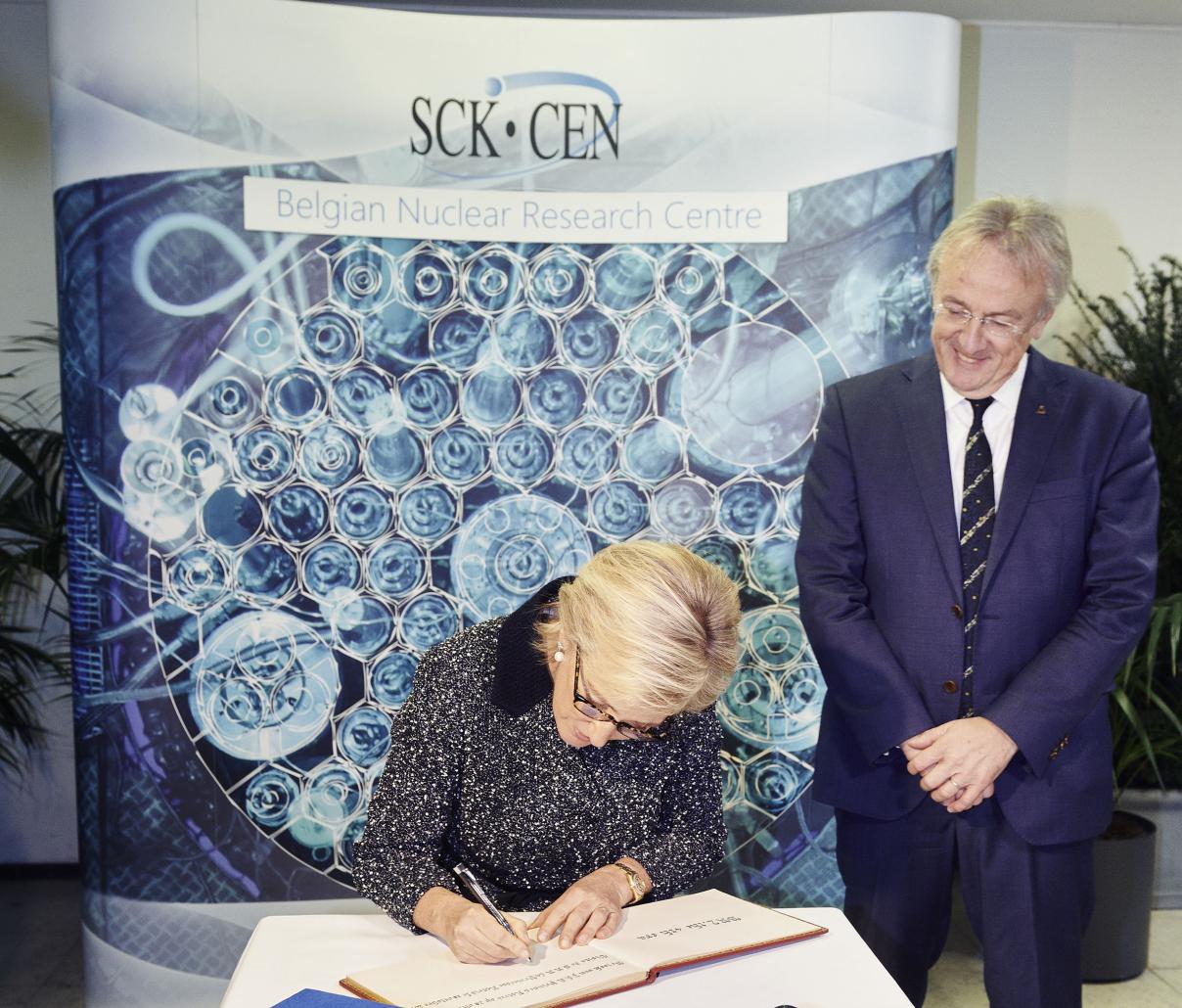
Besides the radioisotopes, BR2 also produces 25% of the world’s demand for doped silicon, a semiconductor used in electronic components for hybrid cars, wind turbines and solar panels, among others. As one of the most powerful and flexible research reactors in the world, BR2 is involved in numerous research programmes on the safety of nuclear materials and fuels, as well as the European nuclear fusion programme.
The cost of the modernisation operation is € 40 million. "Thanks to this refurbishment, BR2 can assure its essential role in technology in order to continue to guarantee the nuclear safety of power reactors and to meet a growing international demand for medical radioisotopes. The reactor is also able to produce new types of radioisotopes that support the advancement of nuclear medicine in the battle against cancer. At its launch in 1961, BR2 was a world first; thanks to this refurbishment, it retains its international reputation of advanced research infrastructure", says Eric van Walle, Director-General of SCK CEN.
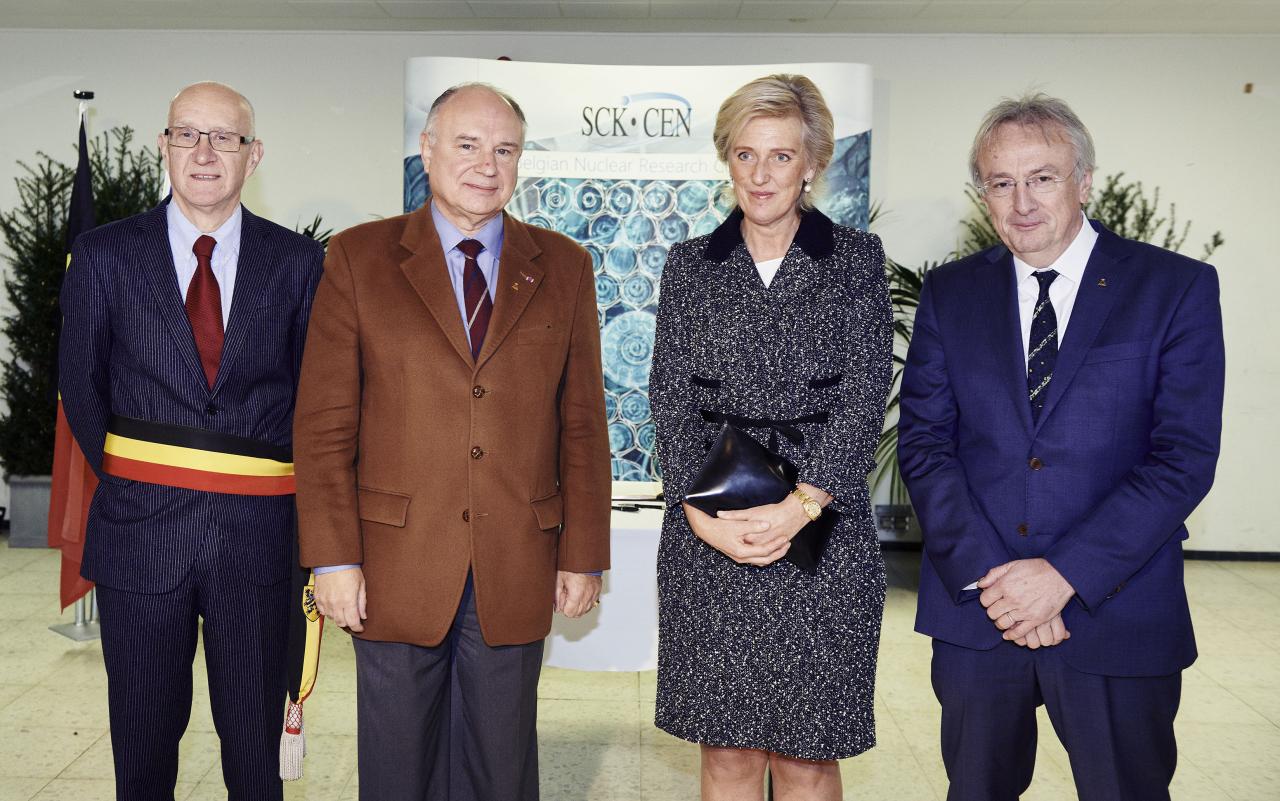
From left to right: Paul Rotthier (Major of Mol), Derrick Gosselin (President of the board of Governors of SCK CEN), HRH Prinses Astrid, Eric van Walle (Director-General SCK CEN)
Related articles
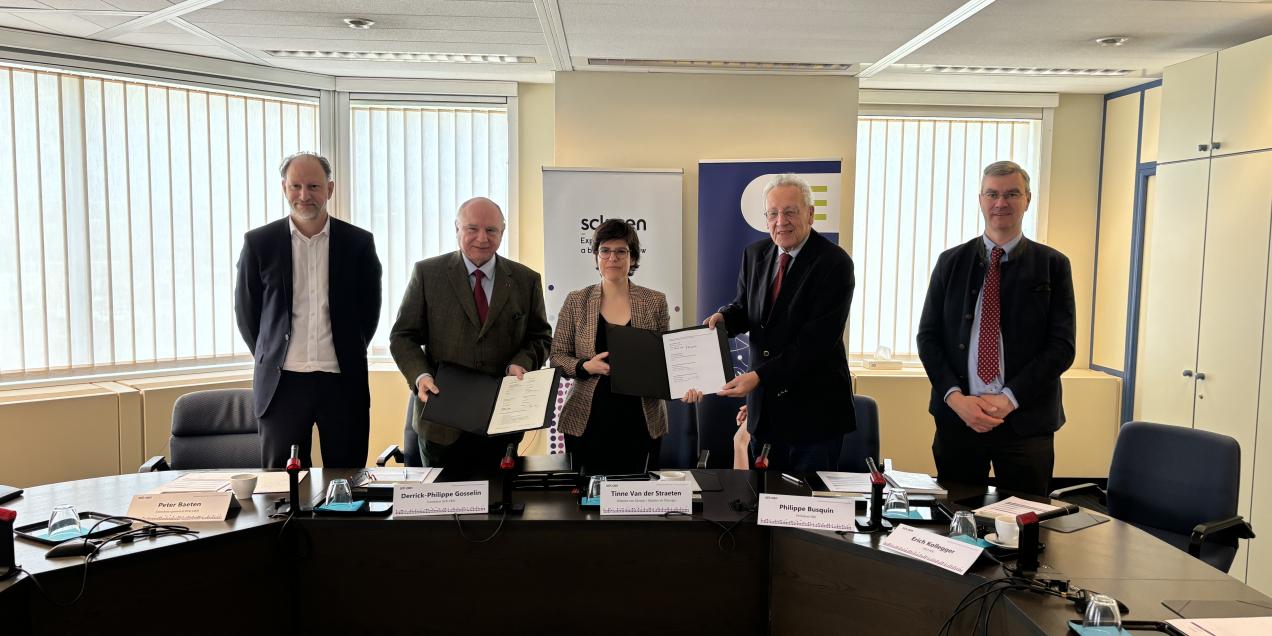 18 April '24
18 April '24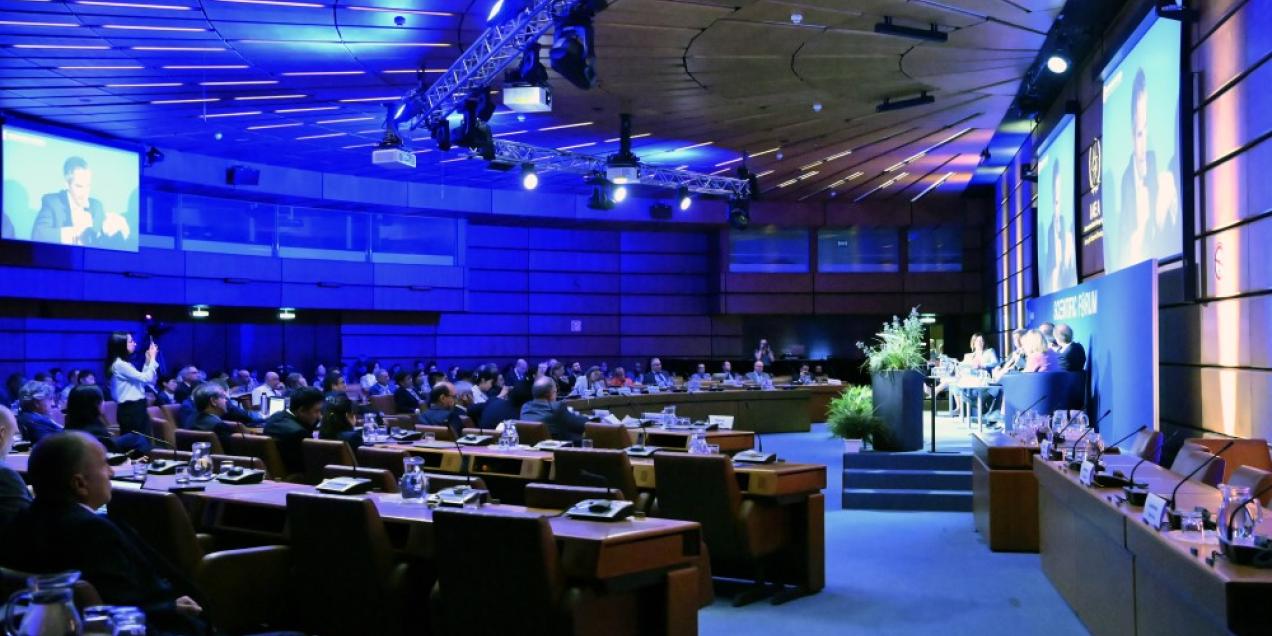 29 September '23
29 September '23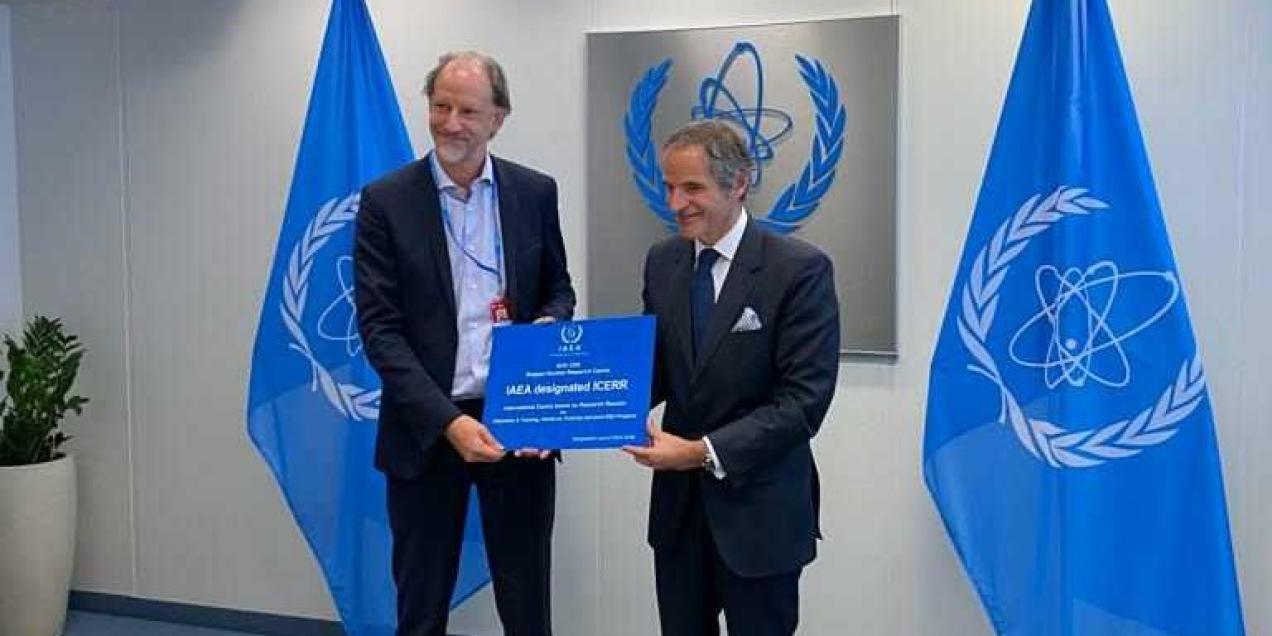 26 September '23
26 September '23